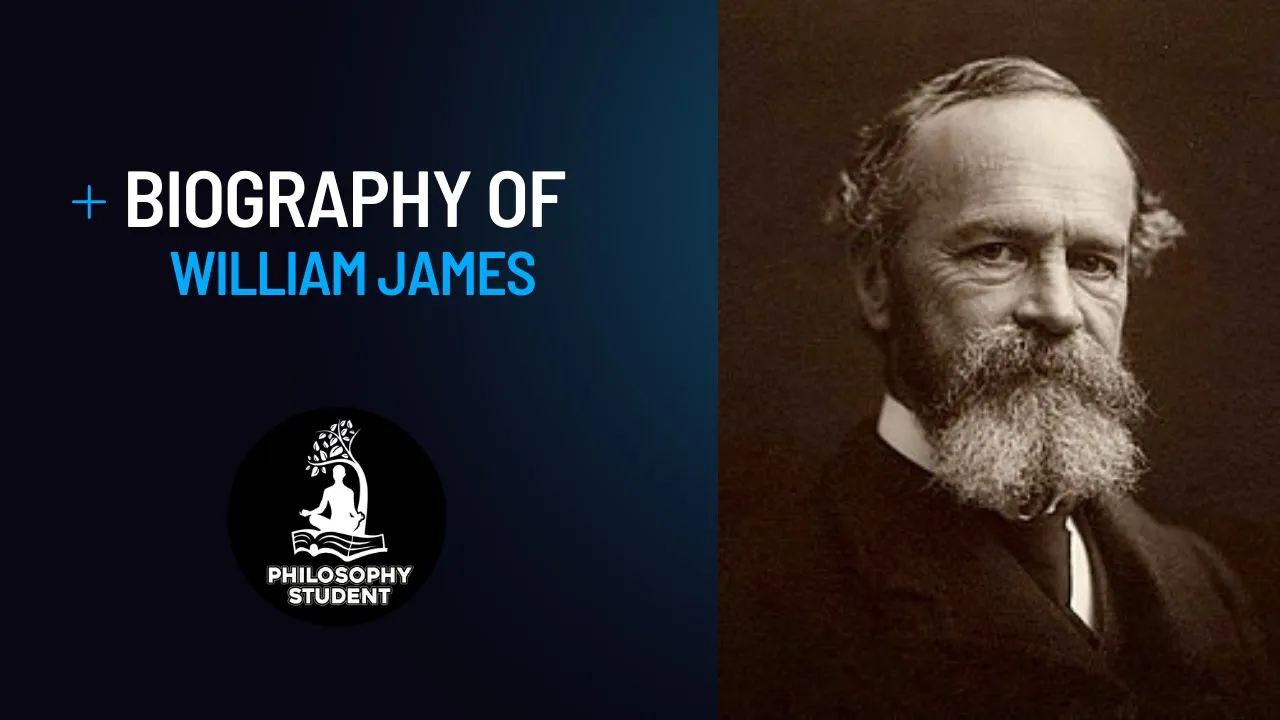One of the most original and approachable of philosophers, William James was instrumental in founding and establishing Pragmatism, which embraces language and thought as the means of problem solving and prediction. In this, it breaks with other, earlier schools of philosophy, which define thought as a means of representing or even mirroring reality. Pragmatism works backward from outcomes, arguing that most philosophical questions, including those concerning the nature of knowledge, meaning, belief, and science, are best answered by evaluating outcomes, practical applications, successes, and failures. Pragmatism was, however, only one dimension of the breadth of James’s philosophical interests. He also made basic contributions in the areas of logic, metaphysics, mind, ethics, religion, philosophy of science, and even aesthetics.
William James was born in New York City on January 11, 1842 to the Swedenborgian philosopher Henry James Sr. and was the elder brother (by one year) of the novelist Henry James. Educated in the US and Europe, James studied art under William Morris Hunt before turning to science and entering the Lawrence Scientific School of Harvard University in 1867 From here, he went on to Harvard Medical School. After accompanying the great naturalist Louis Agassiz in an exploration of the Amazon in 1865 and studying in Germany during 1867-1868, he took his MD degree in 1869. Instead of practicing, however, he taught
physiology, psychology, and, ultimately, philosophy at Harvard in a career that spanned 1872 to 1907.
He married Alice Howe Gibbons in 1878 and had four children with her. The milestones of his illustrious career are marked chiefly by his books, which were read not only in academia but by a far wider audience. They include The Principles of Psychology (1890), The Varieties of Religious Experience (1902), Pragmatism: A New Name for Some Old Ways of Thinking (1907), The Meaning of Truth (1909), A Pluralistic Universe (1909), and Essays in Radical Empiricism (1912). He died on August 26, 1910
James was a great psychologist, who would be remembered as such had he not gone on to work in philosophy, a field he found more intellectually congenial. His philosophical efforts in psychology were aimed primarily at aiding the full transformation of psychology into an independent science of mental phenomena and states of consciousness, including thoughts, feelings, desires, and volitions. He defined thinking in terms of five characteristics:
- All thought is owned by some personal self.
- It is a stream of consciousness and never static.
- There is a continuity of the thought stream through its shifting foci.
- Thought generally deals with objects independent of consciousness itself. The implication of this is that two minds can experience common objects.
- Consciousness chooses the objects in which it is interested.
James regarded the self as something that can be viewed as the object or the subject of thought. The first view is the empirical self (“me”); the second is pure ego (“I”). The me is defined in material, social, and spiritual terms, whereas the I is identifiable with the soul (as understood in traditional metaphysics) and therefore cannot be an object of science.
James saw a progression from sensation to perception to imagination to belief. He believed that human beings share primitive instincts—fear, some desires, and certain forms of sympathy—with other animals. These instincts are inborn. In addition, some emotions are learned behaviors. Most provocatively, James argued that while common sense suggests that perceptions trigger emotional responses, eliciting bodily expressions, the actual sequence is perception, followed by expression, followed by emotional feeling. By way of illustration, James asked us to suppose we see a bear. We respond not with fear that causes us to run, but we have a physical reaction (we tremble) and take a volitional action (we run) but only after we experience the sensation (trembling) and take the action (running) do we feel the emotion (fear). That is, we do not run because we are afraid but we are afraid because we run. The implication is that cognition is not confined to a Cartesian mind separate from the body but is, in fact, embodied, distributed throughout the organism.
In the area of epistemology, James repudiated rationalism and a priori truths. He instead embraced empiricism, which he used in his adaptation of William Sanders Peirce’s original conception of Pragmatism. James envisioned the pragmatic epistemological approach as a compromise between idealism and empiricism. As he formulated it, pragmatism is grounded in the empirical but accommodates the spiritual, moral, and religious. The compromise is enabled by focusing on outcomes—outputs—rather than theoretical or ideal inputs and a priori assumptions. Before investing time and effort seeking the meaning of any phenomenon, we should ponder what practical benefit the answer would provide.
Pragmatism defines truth as a true idea or belief that can be incorporated into our ways of thinking such that it can be validated by experience. Truth must be true in three dimensions: with respect to matters of fact, valid relations of ideas (mathematical truth), and in relation to the entire set of truths to which we are committed. All existential truths are revisable based on new experience. Thus, truth is inherently relative—an idea that created great controversy, which James addressed in The Meaning of Truth.
James devoted special attention to religious belief and wrote one of the great works on the philosophy of religion, The Varieties of Religious Experience. Asserting that, by definition, we do not naturally experience the supernatural, James thought of faith as a failure of knowledge. Yet he admitted that faith is pragmatically meaningful to a great many people.He identified a “Will to Believe,” which substituted religious faith for knowledge when conclusive logical argumentation or scientific evidence is unavailable. Faith, therefore, performs an essential function that permits belief and action even when empirically based knowledge is unavailable.
James went on to develop a philosophy of religion, which he expounded in The Varieties of Religious Experience. He defined religion as the experiences of human beings insofar as they perceive themselves related to whatever they deem divine. Religion is not dependent on the existence of a transcendent, monotheistic God and does not required the presence of a religious community.
The scope, depth, and intellectual generosity of James’s philosophy, coupled with the literary eloquence with which he expressed it, elevated him to the position of “father of American psychology.” Arguably, he remains the single most influential American philosopher as well.




































